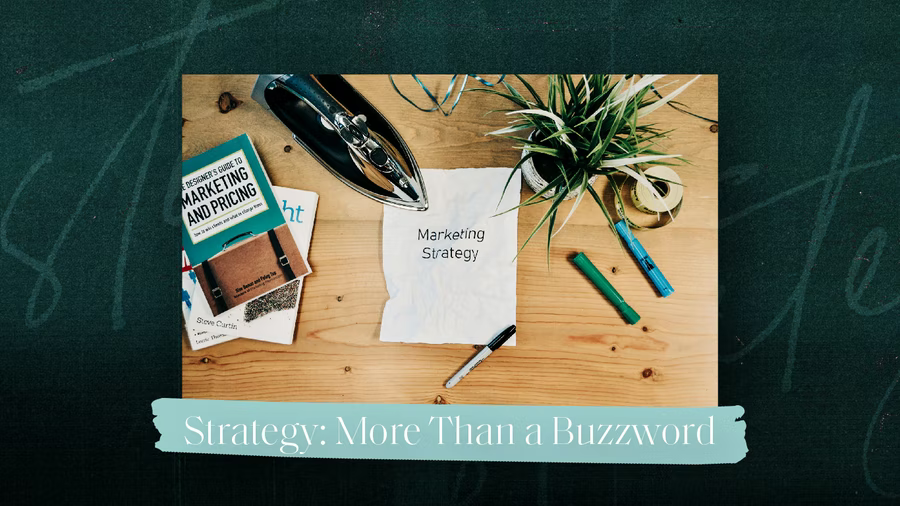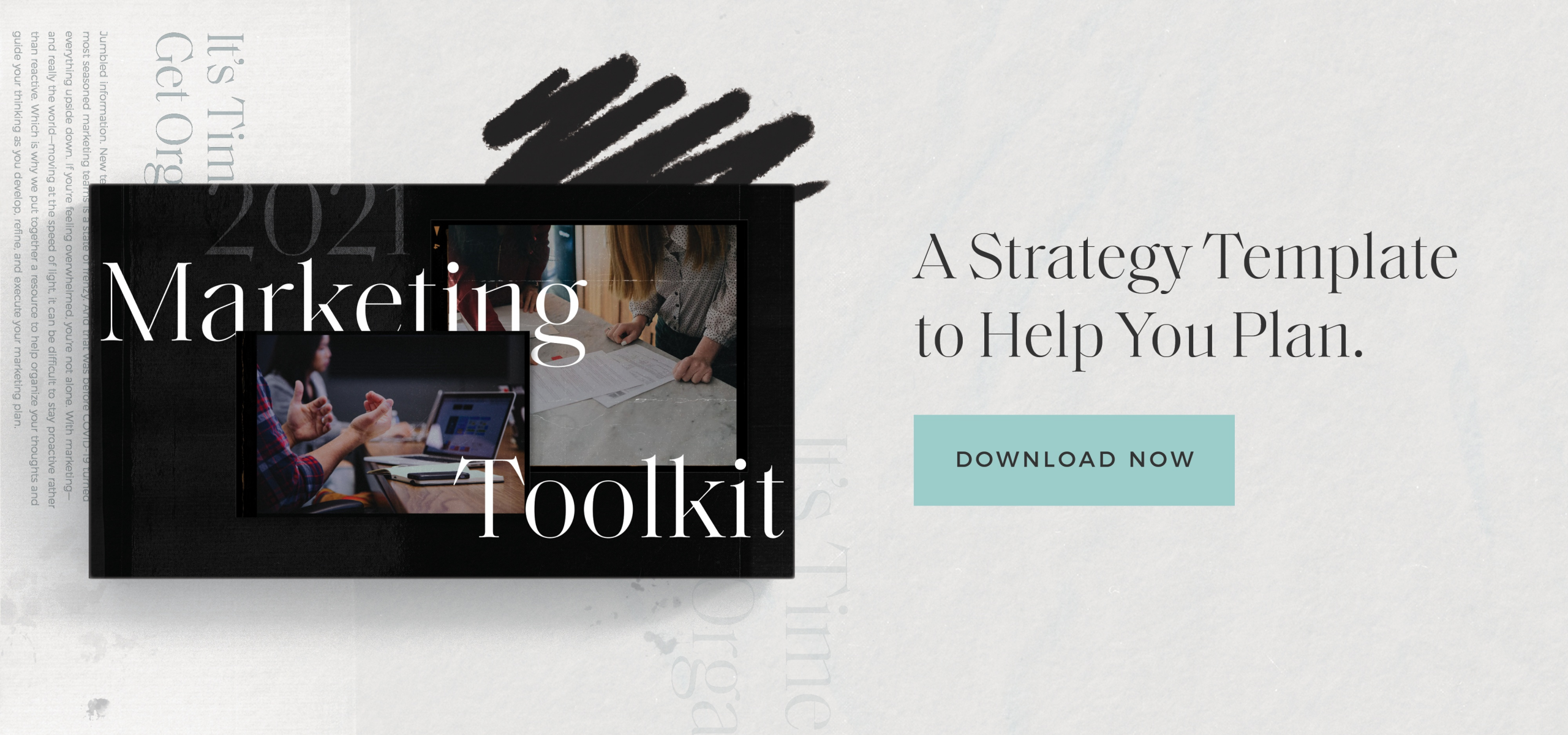The uncertainty that comes from lack of knowledge rears its head when there is an element of something you’re buying you don’t understand. This happens in sales conversations at Element Three all the time. People ask us questions, and it is normal for these questions to come with a degree of discomfort. It’s uncomfortable to not have the knowledge needed to make a good decision or to follow along with a conversation completely. Having to say “I don’t know” is uncomfortable. But you should not be afraid to do it.
If I can answer questions before you have to ask them, that just makes the whole process more comfortable for everyone—especially when it’s a question that comes up a lot, and it’s a subject that you might feel like you should already have a good handle on. For example: the single most common question we get after the basic FAQs of the problems we solve is to break down the term marketing strategy. This post’s purpose is to make that term less marketing mumbo-jumbo and more commonly understood business language.
The way we talk about strategy is commoditized.
It’s an issue, because in reality, strategy cannot be commoditized. It is the special sauce that only exists between the ears of the people you do business with. Yes, it can be put on paper and made the basis for your business for years to come. But there’s no formula to it, no equation that anyone who has it can follow. It is different in every environment.
Sometimes finding the right strategy is simple, it’s so obvious that very little thinking time is needed. You know all the answers to your questions, and you can skip right to planning to execute on your strategy. Other times, you have a very complex business problem and you need to consider many moving parts in your strategy. Think of a one-product startup versus Anheuser-Busch InBev, who owns more labels in the beer industry than anyone. Clearly, the strategy for their business is going to require more nuance and considerations than the one-product startup.
Nowadays, pretty much every marketing partner you might work with is taking your overall business strategy into consideration—or at least they love to say that they do. But is that manifesting itself in the way the work is done? Business does not act in a vacuum, and neither should your operations expert, sales strategist, or marketing consultancy. These are core competencies of any business and they need to click into what you already have going on, and understand where they can be most impactful.
What does it mean to be a strategist?
First and foremost, a strategist is not an order taker. Every marketing agency in the world talks about how much they want to be your partner and not your vendor, but much of the time that isn’t true.
Real strategy isn’t just determining how to rebuild a website or create a brand plan when asked to execute one of those tactics. It’s questioning and investigating whether they’re the correct tactics in the first place. A lot of businesses feel uncomfortable being willing to pay for the answers to this question. What makes it hairy is that sometimes your strategy partner can know without doing any real research whether or not the tactic you think you need actually makes sense for your overall strategy. Take one look at a truly out-of-date website and anyone can know it needs a refresh. The questions only multiply from there, however. Here are a few:
- How well do you know your buyer? Who does this website need to address?
- Are you currently getting leads through your website? If so, what needs to change? Do you need more of them? Different types? Specific service or product lines?
- Have you considered how this will fit into a broader marketing plan? How are you going to get traffic to your website?
- What functionality does it need? Do you need a chatbot, messaging platform, or any sort of login for dealers or customers?
- Who will handle writing the content and getting the assets for your website?
- Is your brand strong enough to capitalize on a new website? Is the messaging clear?
That took me approximately thirty seconds to come up with. Imagine what sorts of questions come up when you are in a longer conversation with an expert. Even something as seemingly vendor-specific as building a website can be extremely intricate when you want it to have a strategic outcome and you don’t know the answers to all the questions.
Finally, it is important that a strategist doesn’t insert themselves into every scenario. If a potential client knows all the answers, has done all the research, feels confident in what needs to be done, and is holding ultimate accountability for the outcome, then either function as a vendor or get them pointed in the direction of a vendor you know and trust. To everyone buying outside support, if that’s you and you’re about to pay a team for strategy support, just stop. If you aren’t saying “I don’t know” during the process—or if your potential consultant isn’t showing you things you didn’t already know—you either don’t need strategy help, or you need to find someone who asks better questions.
What actions and outcomes fall under the term “strategy”?
So far, we’ve established that strategy is a great, big, overused word. Not everything is actually strategy, not everyone is a real strategist, and you don’t always even need a strategist in the first place. Even at Element Three, we don’t always function as a strategist. With established partners who we know and have been working with for years—often, these are partners with whom we’ve already done the strategic foundation building—we may function as a vendor and simply knock out work as it is needed.
Still, this leaves a gap in understanding between what portion of work is strategic, and what is execution. To make this a more complete picture, let’s use a marketing campaign as an example. A basic marketing campaign involves three key parts:
- Creative concepts
- Campaign roadmap
- Media plan
The campaign roadmap essentially gives the details for the route a buyer will travel through the campaign, the media plan says how much money gets spent where in order to promote the campaign, and the creative concepts lay out the message and the creative assets needed to make that message effective. All three of these are strategic endeavors. They are strategic because the outcome of each of them is a plan. It is a detailed overview of what now needs to be executed in order to make a project successful.
To illustrate this further, consider the hierarchy like this: your creative concepts are strategic, and within that will live digital ad creation, video and photography, and copywriting, all of which are execution. Your campaign roadmap is strategic, and it contains channel assignment, asset allocation, and landing page development as tactical execution. And your media plan is strategic, containing tactics like channel budget and ad placement.
You can double click into each of these and see more strategic pieces and execution pieces to your heart’s content—but at some point you do need to actually execute and run a campaign.
There are no standard questions that a strategy answers.
Okay, we’ve hopefully now answered the question “what is a marketing strategy, and what does it do?” The immediate follow-up question is to ask what other questions you should be prepared to answer. Every business is unique, and the questions needed for each unique situation are always changing. They will certainly encompass more than one part of your business, though, so be prepared to talk about the sales process, past marketing efforts, how work flows through your company—everything. The more open you are, the better the strategy becomes, and the better the strategy is, the more effective the execution can (and will) be.






